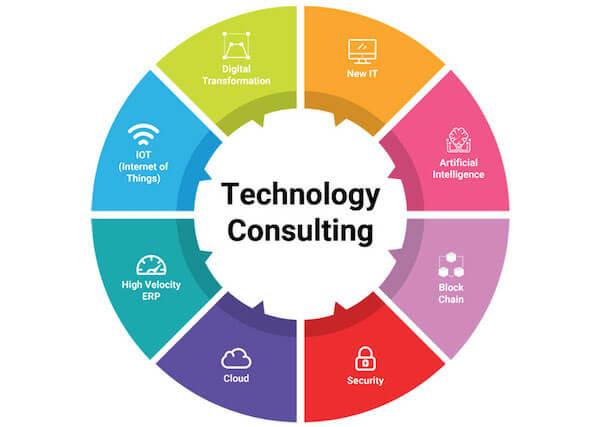
Published: Dec 1, 2024
How the Gig Economy is Reshaping Industries in 2025
How the Gig Economy is Reshaping Industries in 2025
I’ve got to tell you, the gig economy’s been on quite a ride lately! As someone who’s been in the trenches of online business for years, I’ve seen firsthand how it’s turned traditional work on its head. And let me tell you, 2025 is shaping up to be a real game-changer. Ready to dive into the nitty-gritty of how freelancers are shaking things up across industries?
TLDR: What industries are being most affected by the gig economy in 2025?
1️⃣ How is technology adapting to the gig economy?
Tech companies are creating more sophisticated platforms to connect freelancers with clients, incorporating AI for better matching and project management. They’re also developing tools for remote collaboration and secure payment systems tailored for gig workers.
2️⃣ What changes are happening in healthcare due to gig workers?
Healthcare is seeing a rise in on-demand medical professionals, from nurses to specialists. Telemedicine platforms are integrating gig-based healthcare providers, allowing for more flexible and accessible care options.
3️⃣ How is education being transformed by the gig economy?
Education is shifting towards personalized, on-demand learning experiences. Gig-based tutors and subject matter experts are offering specialized courses and one-on-one instruction through online platforms, challenging traditional educational models.
Table of Contents
- The Rise of the Gig Economy: A 2025 Perspective
- Top Industries Transformed by Gig Workers
- The Future of Work: Beyond 2025
- The Gig Economy’s Impact on Business Models
- Challenges and Opportunities in the 2025 Gig Landscape
The Rise of the Gig Economy: A 2025 Perspective
The gig economy has exploded since 2020, completely reshaping how we work. Back then, about 36% of American workers did some form of independent work. Now in 2025, that number has skyrocketed to over 50% according to the latest McKinsey American Opportunity Survey.
Key Factors Driving the Shift
Several major factors have turbocharged this transformation:
-
- The pandemic normalized working from anywhere
- Companies realized they could access global talent pools
- Workers discovered they valued flexibility over traditional office perks
-
- Routine tasks are increasingly handled by machines
- This has pushed workers to develop specialized, creative skills that complement AI
- Freelancers can now leverage AI tools to boost productivity and take on more complex projects
Economic Uncertainty
- Frequent market fluctuations made companies hesitant to hire full-time staff
- Workers sought multiple income streams for financial security
The New Gig Landscape
The gig economy in 2025 looks radically different from just a few years ago:
Specialized Platforms
Gone are the days of catch-all freelance sites. Now we have hyper-focused platforms connecting clients with niche experts. For example, Supercert matches companies with cybersecurity freelancers for specific compliance audits.
Blended Teams
The line between employee and contractor has blurred. I recently worked on a project where half the team were full-time staff and half were gig workers – and you couldn’t tell the difference in terms of commitment or output.
Gig-Friendly Policies
Governments have finally caught up, implementing protections for independent workers. The U.S. PRO Act, passed in 2023, was a game-changer in providing gig workers with basic labor rights.
My Personal Gig Journey
I’ve lived this transformation firsthand. In 2020, I was doing the occasional freelance writing gig on the side of my day job. Fast forward to 2025, and I’m running a thriving digital marketing consultancy with a network of specialized contractors.
Last month, I collaborated with a data scientist in Bali, a UX designer in Toronto, and an AI ethics expert in Lagos – all for a client in Sydney. This kind of global, on-demand teamwork was a pipe dream just a few years ago.
The Challenges Ahead
It hasn’t all been smooth sailing. Gig workers still face hurdles:
- Income Volatility: The feast-or-famine cycle can be stressful
- Benefits Gap: Many still lack access to traditional employment perks
- Constant Upskilling: Staying relevant in a rapidly evolving market is crucial
Looking Forward
As we move towards 2030, I believe we’ll see even more innovation in the gig space:
- Decentralized Autonomous Organizations (DAOs) could revolutionize how freelancers collaborate and share profits
- AR/VR Technologies may create entirely new categories of gig work we can’t even imagine yet
- Universal Basic Income experiments might provide a safety net for gig workers
The gig economy of 2025 is vibrant, complex, and full of opportunity. It’s not without its challenges, but for those willing to adapt, the possibilities are endless. The future of work is here – and it’s more flexible, diverse, and dynamic than ever before.
Top Industries Transformed by Gig Workers
The gig economy has radically changed how we work, and its impact is especially noticeable in certain sectors. Let’s dive into the industries that have seen the biggest shifts thanks to freelancers and independent contractors.
Technology and IT
The tech world has always been quick to adapt, so it’s no surprise that it’s leading the gig economy charge.
Software Development
- Platforms like GitHub have made it easier than ever for developers to collaborate on projects remotely
- Companies are tapping into global talent pools for specialized coding skills
- Example: I recently worked with a startup that assembled a team of five developers from three different continents to build their app
Cybersecurity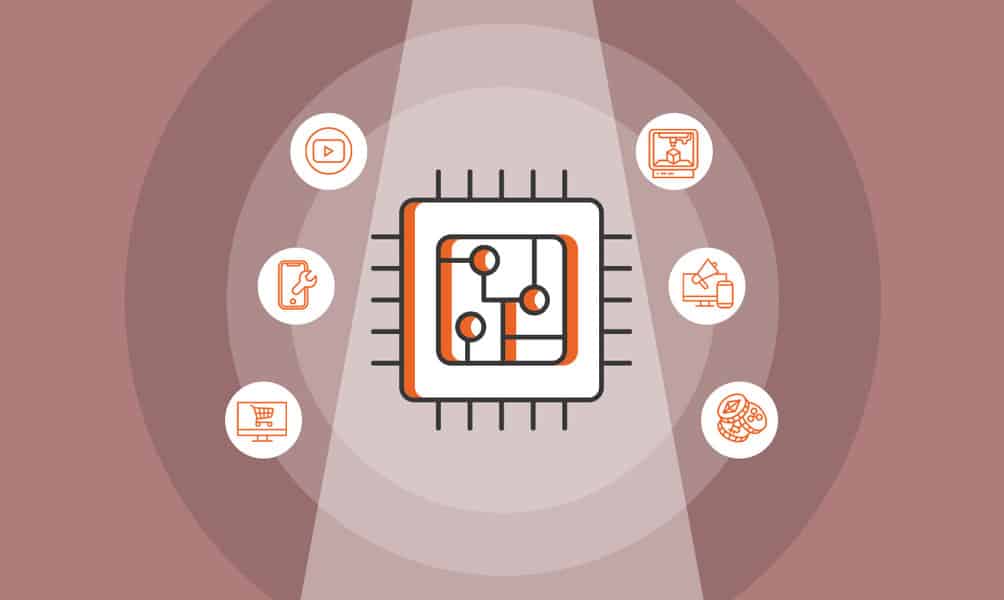
- The rise of remote work has increased demand for freelance security experts
- Gig workers are often brought in for short-term projects like penetration testing or security audits
Data Science
- Companies are increasingly relying on freelance data scientists for specific projects
- Platforms like Kaggle host competitions that attract top data science talent
Healthcare
The healthcare industry has seen a significant transformation, with gig work addressing staffing shortages and increasing accessibility.
Telemedicine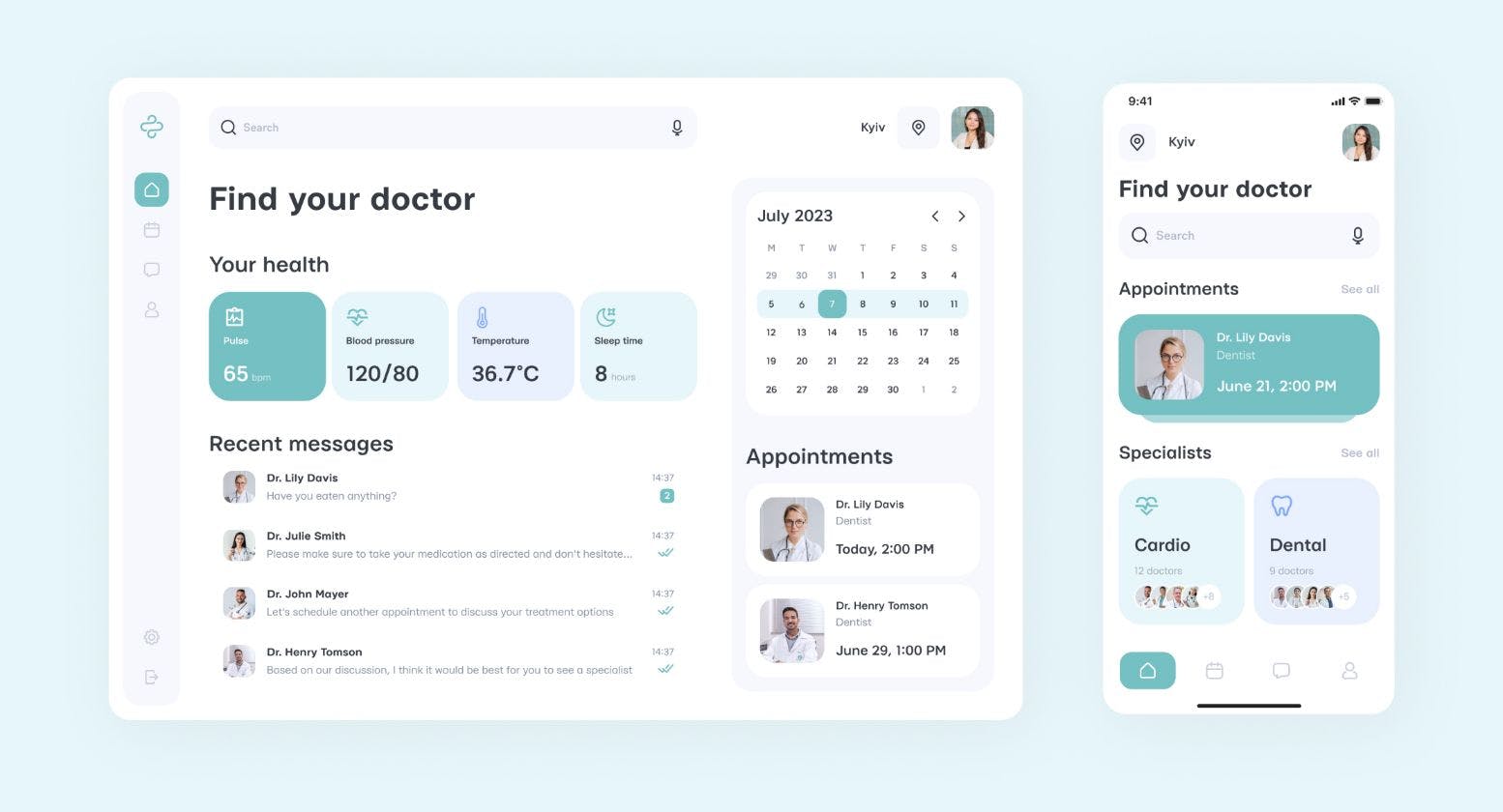
- Platforms like Teladoc connect patients with on-demand healthcare professionals
- Gig workers in mental health have seen a surge in demand, especially since the pandemic
Locum Tenens
- Temporary medical staffing has become more prevalent, with doctors and nurses taking short-term assignments
- This flexibility helps address staffing shortages in rural areas
Education
The education sector has embraced gig work, leading to more personalized and flexible learning experiences.
Online Tutoring
- Platforms like VIPKid have created global marketplaces for tutors
- Specialization is key: I know a physics PhD who makes a living tutoring high-level concepts to university students worldwide
Course Creation
- Sites like Udemy allow experts to create and sell courses on any topic
- This has democratized education, making specialized knowledge more accessible
Creative and Media
The creative industries have long been bastions of freelance work, but new platforms have supercharged this trend.
Content Creation
- The rise of influencer marketing has created new opportunities for freelance content creators
- Platforms like TikTok have turned short-form video creation into a viable career
Graphic Design
- Sites like 99designs have created competitive marketplaces for designers
- Companies can now access a global pool of design talent for everything from logos to full brand overhauls
Transportation and Delivery
The gig economy has revolutionized how we move people and goods.
Ride-sharing
- Companies like Uber and Lyft have created flexible work opportunities for millions
- The model has expanded to include food delivery, package delivery, and even grocery shopping
Last-Mile Delivery
- The e-commerce boom has increased demand for flexible delivery workers
- Companies like Instacart have created new categories of gig work
These industries are just the tip of the iceberg. The gig economy is spreading to almost every sector, from legal services to home maintenance. As we look to the future, it’s clear that the ability to tap into global talent pools on-demand is reshaping how businesses operate and how we think about work itself.
The Future of Work: Beyond 2025
The gig economy’s momentum isn’t slowing down anytime soon. As we look past 2025, some exciting trends are shaping up that’ll change how we think about work. Let me break it down for you.
Artificial Intelligence and Automation
AI’s going to be a game-changer, no doubt about it. But it’s not all doom and gloom for us humans.
AI Collaboration
- Gig workers will increasingly team up with AI tools to boost productivity
- I’ve already seen freelance writers using AI for research and idea generation, freeing them up for more creative tasks
New Job Categories
- As AI takes over routine tasks, we’ll see new specialties pop up
- AI trainers, ethics consultants, and human-AI interface designers will be in high demand
Decentralized Autonomous Organizations (DAOs)
DAOs are set to shake things up in a big way.
Freelancer Cooperatives
- Imagine a group of freelancers banding together, pooling resources, and sharing profits
- I’m part of a DAO for digital marketers, and it’s revolutionized how we collaborate and negotiate with clients
Project-Based Micro-Companies
- We’ll see more temporary companies formed around specific projects
- These fluid organizations will assemble top talent from around the globe, then disband when the job’s done
Virtual and Augmented Reality
VR and AR aren’t just for gaming anymore. They’re changing how we work.
Virtual Offices
- Remote work will feel more like being in the office
- I recently attended a virtual conference that felt surprisingly real - handshakes and all!
New Gig Opportunities
- VR experience designers, virtual event planners, and AR maintenance technicians will be in high demand
- The metaverse will create entirely new categories of work we can’t even imagine yet
Skills Evolution
The skills that’ll be valuable in the future might surprise you.
Soft Skills Renaissance
- As AI handles more technical tasks, uniquely human skills will become more valuable
- Emotional intelligence, creativity, and adaptability will be crucial
Continuous Learning
- The half-life of skills is shrinking fast
- Platforms like Coursera and edX will become even more integral for gig workers staying current
Policy and Protection
As the gig economy grows, so will efforts to protect workers.
Universal Basic Income
- Some countries might implement UBI to provide a safety net for gig workers
- Finland’s UBI experiment showed promising results for freelancers’ well-being
Portable Benefits
- We’ll likely see more programs allowing gig workers to carry benefits between jobs
- The Black Car Fund in New York is a great example of this model in action
Global Talent Pool
The world is becoming one big labor market.
Digital Nomad Visas
- More countries will offer visas specifically for remote workers
- I’ve got my eye on Estonia’s e-Residency program - it’s a glimpse into the future of borderless work
Global Wage Equalization
- As remote work becomes the norm, we might see wages start to even out globally
- This could be a big win for workers in developing countries
The future of work is looking pretty wild, isn’t it? It’s a mix of excitement and uncertainty, but one thing’s for sure - adaptability is going to be key. Whether you’re a freelancer, a business owner, or somewhere in between, staying flexible and open to change will be your best bet for thriving in this new world of work. Buckle up, folks - it’s going to be quite a ride!
The Gig Economy’s Impact on Business Models
The gig economy isn’t just changing how people work - it’s fundamentally reshaping how businesses operate. I’ve seen firsthand how companies are adapting their structures to tap into this new talent pool. Let’s break down some of the biggest shifts.
Lean and Agile Operations
Businesses are slimming down their core teams and relying more on freelancers for specialized tasks.
Project-Based Teams
- Companies assemble custom teams for specific projects
- I recently worked with a startup that built an entire app using only freelancers - from developers to designers to marketers
Reduced Overhead Costs
- Fewer full-time employees mean lower fixed costs
- WeWork and similar coworking spaces are booming as businesses downsize their physical offices
Platforms as Business Models
Some of the most successful companies today are essentially matchmakers between gig workers and clients.
Uber and the Platform Revolution
- Uber doesn’t own cars or employ drivers - it’s a technology platform connecting riders and drivers
- This model has spread to countless industries, from food delivery to home services
Specialized Marketplaces
- Niche platforms are emerging for specific skills
- Toptal for high-end tech talent, Catalant for business consultants
The Rise of the Blended Workforce
Companies are finding ways to integrate gig workers with their full-time staff.
Hybrid Teams
- Full-time employees work alongside freelancers on projects
- This allows companies to scale up or down quickly based on demand
Management Challenges
- New skills required for managing remote, distributed teams
- Tools like Asana and Slack are crucial for keeping everyone aligned
On-Demand Expertise
Businesses can now access top-tier talent without the commitment of full-time hires.
Fractional Executives
- Companies hire part-time CFOs, CMOs, or CTOs through platforms like Graphite
- This gives small businesses access to executive-level expertise they couldn’t otherwise afford
Specialized Consultants
- Businesses bring in experts for specific challenges
- I know a data privacy consultant who works with dozens of companies to ensure GDPR compliance
Challenges and Adaptations
It’s not all smooth sailing - businesses are facing new challenges in this gig-driven world.
Quality Control
Maintaining consistent quality with a rotating cast of freelancers can be tough
Some companies, like Automattic
(the folks behind WordPress), have developed rigorous vetting processes for their distributed workforce
Culture Building
- Creating a strong company culture with a dispersed team is challenging
- Businesses are getting creative - virtual happy hours, online team-building games, and periodic in-person retreats are becoming common
Legal and Regulatory Hurdles
- The line between employee and contractor is blurring
- Companies like Handy have faced lawsuits over worker classification
Case Study:Basecamp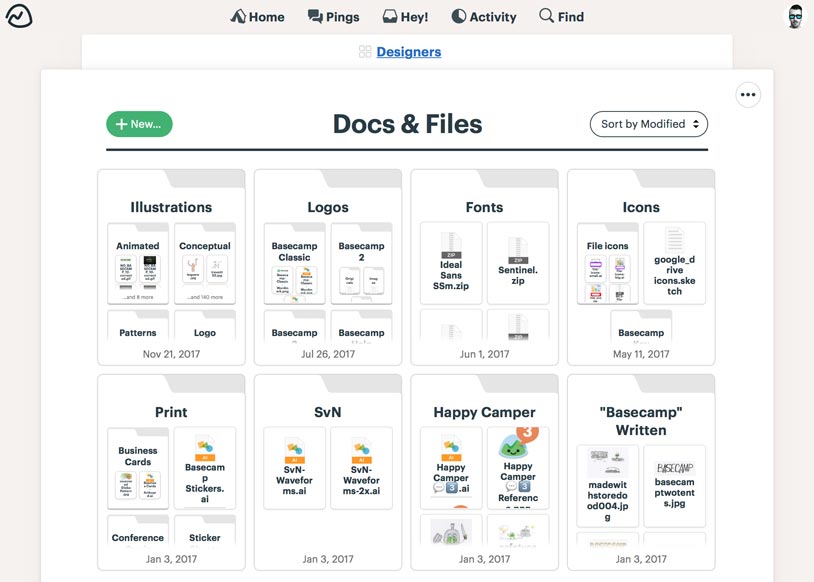
Basecamp is a great example of a company fully embracing the gig economy model:
- They have a small core team of about 50 employees
- They hire freelancers for everything from customer support to illustration
- Their project management tool is designed for distributed teams
- They’ve written books on remote work that have influenced countless other companies
The Future of Business Models
Looking ahead, I see a few trends emerging:
- Micro-Multinationals: Small companies with global reach, leveraging freelancers around the world
- AI Integration: Businesses will use AI to manage and optimize their gig workforce
- Blockchain for Trust: Decentralized platforms using blockchain to ensure fair pay and transparent contracts for gig workers
The gig economy is pushing businesses to be more flexible, efficient, and global in their outlook. While there are certainly challenges, the companies that adapt to this new reality are finding themselves more competitive and resilient. As someone who’s been both a freelancer and a business owner, I’m excited to see how these models continue to evolve.
Challenges and Opportunities in the 2025 Gig Landscape
The gig economy in 2025 is a double-edged sword, offering both exciting opportunities and significant challenges. Let’s dive into the nitty-gritty of what freelancers and companies are facing in this new world of work.
Income Volatility: The Rollercoaster Ride
For many gig workers, income stability is a major concern.
The Feast or Famine Cycle
- Inconsistent workloads can lead to financial stress
- I’ve had months where I’m turning down work, followed by weeks of crickets
Strategies for Stability
- Income Smoothing Apps
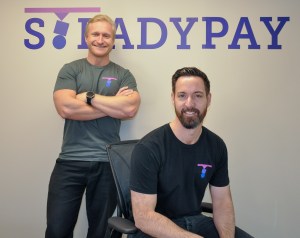 Tools like Even help gig workers even out their cash flow
Tools like Even help gig workers even out their cash flow - Multiple Income Streams: I personally juggle consulting, online courses, and affiliate marketing to keep things steady
Benefits Gap: The Healthcare Hustle
Traditional employment benefits are often out of reach for gig workers.
Health Insurance Headaches
- In the U.S., healthcare costs can be a major burden for freelancers
- The Affordable Care Act marketplace has been a lifeline for many, but it’s not perfect
Retirement Planning
- No employer-sponsored 401(k) means gig workers need to be proactive
- Solo 401(k) plans have become popular among high-earning freelancers
Skill Development: The Upskilling Imperative
Staying relevant in a rapidly evolving market is crucial.
Continuous Learning
- Platforms like Udacity offer “nanodegrees” in cutting-edge fields
- I recently completed a course on AI ethics to stay ahead of the curve
Skill Stacking
- Combining multiple skills creates unique value propositions
- For example, a developer who understands UX design and marketing is in high demand
Work-Life Balance: The Blurred Lines
The freedom of gig work can sometimes feel like a 24/7 job.
Setting Boundaries
- Using tools like RescueTime to track and limit work hours
- Creating a dedicated workspace, even in a small apartment, helps separate work and personal life
Digital Detox
- Regular “unplugged” time is crucial for mental health
- I’ve started “No-Tech Sundays” to recharge and connect with family
Legal and Regulatory Challenges: Navigating the Gray Areas
The legal landscape for gig workers is still evolving.
Worker Classification
- The debate over employee vs. contractor status continues
- California’s AB5 law has had ripple effects across the country
Global Compliance
- Working with international clients brings tax and legal complexities
- Services like Deel help navigate international hiring and payment
Opportunities in the 2025 Gig Landscape
Despite the challenges, the gig economy offers exciting possibilities.
Niche Specialization
- Hyper-specific skills are in high demand
- I know a copywriter who specializes in AI-generated content optimization and charges premium rates
Web3 and Blockchain
- Decentralized platforms are creating new opportunities for gig workers
- Gitcoin allows developers to earn cryptocurrency for open-source contributions
Internet of Things (IoT) Integration
- The explosion of smart devices is creating new gig opportunities
- IoT technicians and data analysts are in high demand
Global Collaboration
- Time zone differences become an advantage in 24/7 project management
- I recently worked on a project with team members in Bali, Toronto, and Lagos, each handing off tasks as their workday ended
The Future is Fluid
The gig economy of 2025 is all about adaptability. Those who can navigate the challenges while seizing new opportunities are thriving. It’s not always easy, but the freedom and potential for innovation make it an exciting time to be a gig worker.
As we look ahead, I’m optimistic about the potential for technology and policy to address many of these challenges. The gig economy isn’t going anywhere – it’s up to us to shape it into a system that works for everyone.

